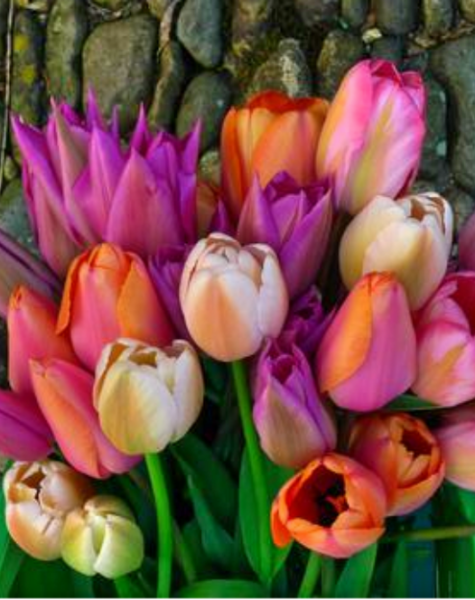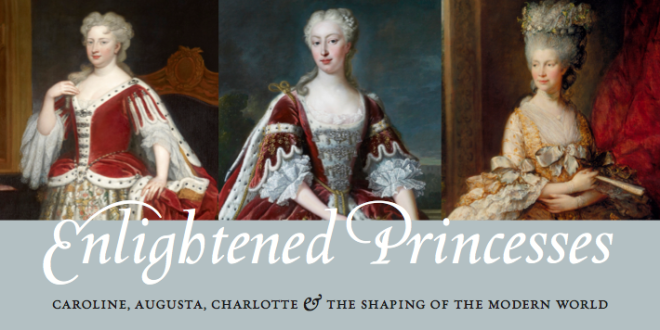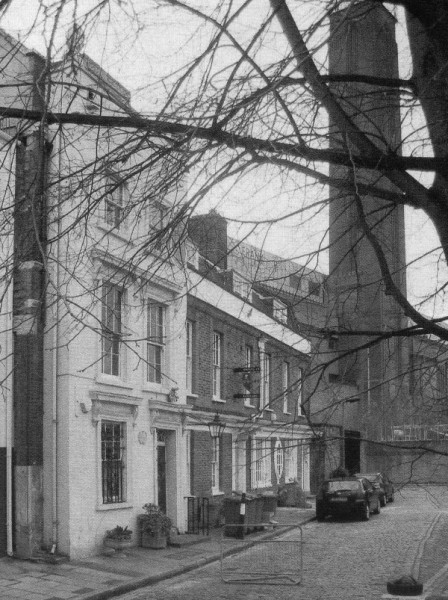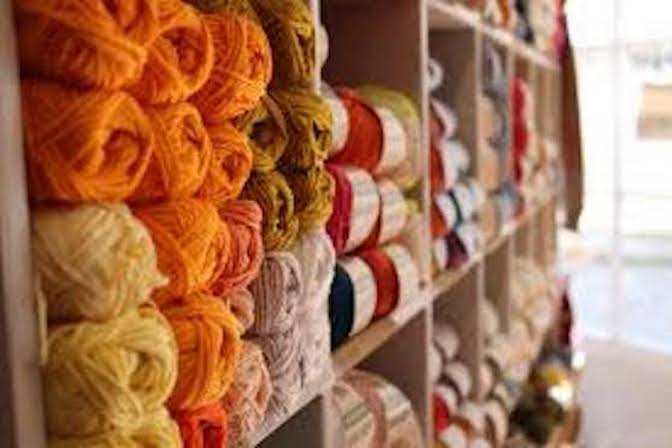Back to Bath, for more walks along the Canal and into town (visits to Mr B’s and Topping’s and the Foodie Bugle and, tomorrow, the Theatre Royal – Henry Goodman as Lucian Freud). And reading of course: Hilma Wolitzer (and how exciting that there is going to be a new novel by Meg W – her daughter – next spring) and Peter Wildeblood’s Against the Law (absolutely brilliant, inexplicably not in print, maybe that should be remedied) and Mansfield Park (because it was recently so well written about by Book Snob here). Also knitting a scarf/muffler, so peaceful and undemanding, in a beautiful Scandinavian blue/teal that came from the fabulous Wool. The orange in this photograph, from Wool,

is probably too bright for us to wear, (although we are rather tempted) but we have succumbed to the similar colour in Peter Nyseen’s Sorbet Tulip Collection chosen by Jane Brocket

and are hoping she might bring her green fingers to Lamb’s Conduit Street and help us plant the sorbet-coloured tulips in the window boxes in October.
There is an exhibition at Kensington Palace until mid-November called Enlightened Princesses.

It explores the story of three German princesses: Caroline of Ansbach, Augusta of Saxe-Gotha, and Charlotte of Mecklenberg-Strelitz, all of whom married into the British royal family in the eighteenth century. ‘Through their wide-ranging intellectual, social, and political interests, they helped to shape court culture and the age in which they lived, and would leave a lasting legacy. They encouraged the greatest philosophers, scientists, artists, and architects of the day; and they brought art, music, dance, enlightened conversation, and experimentation into the palaces and royal gardens, and supported industry, trade, and imperial ambition.’
Gillian Tindall had an excellent blog post on Spitalfields Life, illustrated with photographs that included this one of 49 Bankside, the subject of her book The House by the Thames (which we sell in the shop).

The New Statesman asked people to choose their favourite political novels. Howard Jacobson chose Little Dorrit and Rachel Reeves chose North and South here. She said: ‘North and South by Elizabeth Gaskell is political in three senses: the division between the workers and the owners of the mills and factories; the lack of understanding and sympathy between inhabitants of the “tranquil” south and industrial north; and the inferior role occupied by women in industry and politics… But perhaps most importantly, Gaskell’s heroine Margaret Hale knew that the personal was political. The story of Bessy Higgins, the young woman whom Hale nurses, dying from a disease of the lungs after working in a cotton mill since childhood, is one of industrial manslaughter. Margaret’s brother being court-marshalled for failing to obey orders is a story of a family torn apart and the unyielding power of the state. And Hale falling in love with the mill owner John Thornton is a love story – but it is also a story of a woman’s position in society and her refusal to obey the rules of gender or class.’ We plan a re-read of both over the next year. And then we might re-watch the dvd’s both are available for £10 in the shop).
Talking of dvd’s, we very much recommend A Quiet Passion, about Emily Dickinson (also soldl in the shop). Dvd’s are much needed at the moment, with politics – and so much else – so wrecked and it being imperative to have things to take one’s mind off the news. We of course are delighted that our favourite Home Front has re-started, although politics was far, far more wrecked then so actually the 1914-18 Home Front ought to be just as upsetting as the 2017 real-life Home Front. But somehow isn’t.
Nicola Beauman
59 Lamb’s Conduit Street
